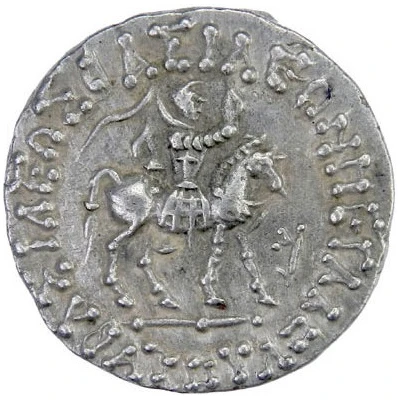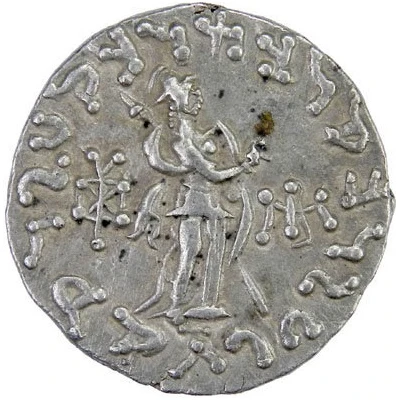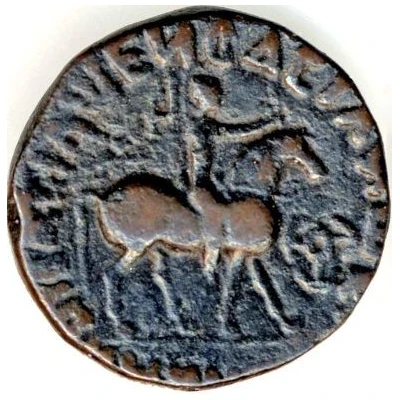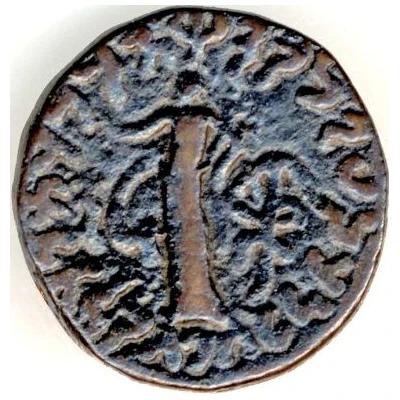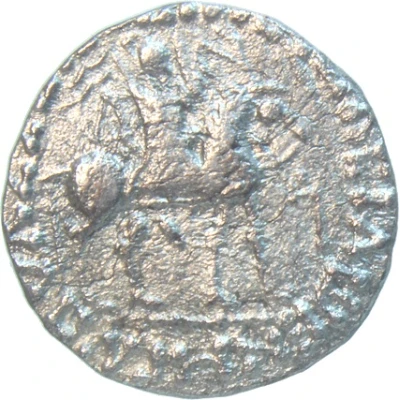
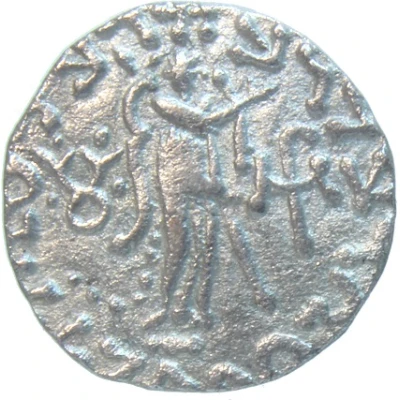

© Sujit
Tetradrachm - Azes II Taxila Sirsukh 35 BC - 5 AD
| Silver | 9.64 g | 23 mm |
| Issuer | Indo-Scythian Kingdom |
|---|---|
| Type | Standard circulation coin |
| Years | 35 BC - 5 AD |
| Value | Tetradrachm (4) |
| Currency | Drachm (200 BC to 400 AC) |
| Composition | Silver |
| Weight | 9.64 g |
| Diameter | 23 mm |
| Shape | Round (irregular) |
| Technique | Hammered |
| Demonetized | Yes |
| Updated | 2024-10-10 |
| Numista | N#101510 |
|---|---|
| Rarity index | 92% |
Reverse
Pallas standing facing to Right, Kharoshti legend around
Translation: MAHARAJASA RAJADIRAJASU MAHATASA AYASA
Edge
Plain
Comment
Taxila Sirsukh mintMitchner ACW 2449-2450
Interesting fact
One interesting fact about the Tetradrachm - Azes II (Taxila Sirsukh) coin from the Indo-Scythian Kingdom is that it features a unique blend of Greek and Indian influences in its design. The coin's obverse side features a portrait of Azes II, while the reverse side depicts a seated Zeus, a common motif in Greek coinage. However, the coin's design also incorporates Indian elements, such as the use of the Kharoshthi script and the depiction of a lion, which is a common motif in Indian art. This blending of cultural influences reflects the Indo-Scythian Kingdom's diverse cultural heritage and its position as a crossroads between the Greek and Indian worlds.
